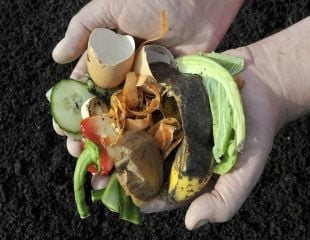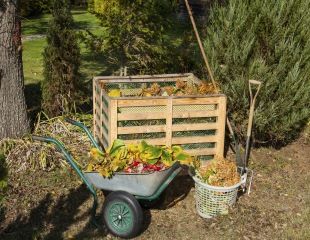How to Start a Compost Bin
Posted on
 |
 |
How to start a compost bin and keep it at its bestAs we look for sustainable solutions to reduce our carbon footpring, making rather than buying compost is a good starting point. According to the RHS in their recent greener gardening launch : "Carbon saving quantities linked to home composting (as opposed to buying bagged retail compost) are equivalent to 1.85 miles (driven by average car) saved per kg of home compost made.
Every 1kg of homemade compost saves 0.1kg fossil carbon, which could save more than 15 - 19kg carbon, per gardener, per year." At Wheelie Bin Solutions we're seeing more and more customers ask us about how to start a compost bin and the best ways to make a success of it.
Compost is a great way to reuse organic waste by turning it back into fertiliser for the garden. It's a closed-loop process and requires very little external energy or material input, making it a good eco-friendly option.
The good news is that it's quite easy to start a compost bin even in a small garden, while in larger gardens you might want to consider starting a compost heap at the back of a flowerbed or shrubbery instead.
For a self-contained compost bin, all you really need is a food waste wheelie bin and the right kinds of food and garden waste, and away you go.
What food waste goes in a compost bin?
Raw vegetable waste including fruit and vegetable peels, off-cuts like carrot tops, and leftover ingredients that you didn't fully use up can all go in your compost bin.
You can also put garden waste in there, like dead leaves, grass clippings, and dead flowers you pull up from your borders - just be careful not to let any invasive weeds get in there.
Avoid anything that will make your compost bin turn nasty, such as meat that can become infested with maggots, or dairy which will cause your compost to smell awful.
Top tips for healthy compost
Although it's not too hard to maintain a healthy compost bin or compost heap, there are a few things you can do to give your compost the best chance of rotting down to a rich fertiliser instead of a mouldy mess.
Here are a few of our top tips for the best compost:
If your compost is too wet, introduce some dry materials like dead leaves or even some old shredded paper or egg cartons. These will also create air pockets as they rot down, helping to aerate your compost even more.
Do's and don't of composting
There are just a few final do's and don't of composting to keep in mind:
Follow these tips and you should be well on your way to a wheelie bin full of fertiliser, instead of a mouldy maggot-infested mess! |

Add a comment: